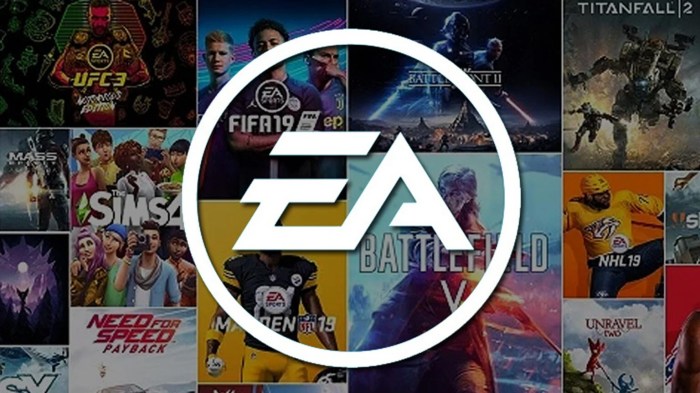EA shutting down Sims Facebook games on June 14? Yeah, it happened. The news sent shockwaves through the virtual world, leaving loyal players reeling. From heartbroken cries on social media to furious forum posts, the reaction was as diverse as the Sims themselves. This isn’t just about a game shutting down; it’s about the end of an era, a digital community dissolving, and a whole lot of unanswered questions about the future of social gaming.
This unexpected move by EA sparked a firestorm of debate. What were the real reasons behind the shutdown? Was it purely financial? Did player numbers dwindle? And what does this mean for the future of Facebook gaming, and for EA’s reputation? We dive deep into EA’s official statements, analyze player reactions, and explore the potential ripple effects of this significant event. Get ready for a rollercoaster of emotions and insights.
EA’s Justification for the Shutdown: Ea Shutting Down Sims Facebook Games On June 14
The sunsetting of EA’s Sims Facebook games on June 14th, 2024, wasn’t a spur-of-the-moment decision. It followed a pattern increasingly common in the gaming industry: the difficult but sometimes necessary choice to retire older titles to focus resources elsewhere. EA’s official statement, while not explicitly detailed, hinted at the underlying reasons behind this move.
EA’s primary justification centered around the increasing costs and complexities of maintaining older games, particularly those built on outdated technology. These games, while possessing a loyal fanbase, simply weren’t generating sufficient revenue to justify the ongoing investment required to keep them running smoothly and securely. Maintaining older games often involves significant expenses in server upkeep, bug fixes, and security patches – a drain on resources that could be better allocated to newer projects with higher potential returns.
Financial Implications of Maintaining Older Games
The financial realities of sustaining older games like the Sims Facebook titles are complex. These games, released years ago, likely run on legacy systems requiring specialized expertise and potentially expensive maintenance contracts. Furthermore, the revenue streams from these older games, relying primarily on in-app purchases and potentially advertising revenue, likely diminished over time as players migrated to newer platforms and gaming experiences. The cost of keeping these games operational – including server maintenance, security updates, and customer support – likely outweighed the revenue generated, making their continued operation financially unsustainable. This scenario mirrors the challenges faced by many companies maintaining older software and applications, where the cost of maintenance often surpasses the benefits. Think of it like an old car: while sentimental value might be high, the constant repairs eventually become too costly to justify keeping it on the road.
Comparison to Similar Shutdowns of Other Online Games
EA’s decision echoes similar moves by other major gaming companies. Numerous online games, from smaller indie titles to large-scale MMOs, have faced the same fate. Often, the announcement of a shutdown is met with disappointment from loyal players, but it frequently reflects a business decision driven by the need to reallocate resources to more profitable and sustainable ventures. The shutdown of games like Club Penguin or even specific servers in larger MMOs serves as precedent, highlighting the industry-wide trend of prioritizing newer projects over maintaining older ones, even if those older games hold a place in many players’ hearts.
Impact on EA’s Overall Brand Image, Ea shutting down sims facebook games on june 14
The shutdown of the Sims Facebook games could potentially impact EA’s brand image, although the extent of the impact is difficult to predict. While some players may express frustration or disappointment, EA’s decision is likely to be understood within the context of the evolving gaming landscape and the financial realities of maintaining older titles. A carefully managed communication strategy, offering alternatives or expressing gratitude to loyal players, can mitigate potential negative effects on brand perception. The ultimate impact will depend on EA’s handling of the situation and the overall reaction of the player base. However, the risk of negative brand impact is often outweighed by the need to allocate resources strategically for the long-term health and profitability of the company.
Technical Aspects of the Shutdown
Shutting down a long-running online game like The Sims Social isn’t a simple flick of a switch. It’s a complex undertaking involving intricate technical processes, careful communication, and meticulous data management. EA’s decision to sunset the game necessitated a multi-phased approach, encompassing server decommissioning, player communication, and data archiving.
The technical process involved a series of carefully orchestrated steps. First, EA likely initiated a phased server shutdown, gradually reducing capacity and functionality over time. This minimizes the impact on remaining players and allows for a controlled transition. Simultaneously, engineers would have begun the process of data migration, moving essential player information to secure off-site storage. This data likely included user profiles, game progress, and any in-game purchases. Finally, the physical servers hosting the game would be decommissioned, ending the game’s online presence. This process is akin to slowly draining a swimming pool before completely dismantling the structure surrounding it.
Server Decommissioning and Data Migration
The server decommissioning process is a crucial element. It involves systematically shutting down individual servers, ensuring data integrity and preventing data loss during the process. This isn’t a single event; it’s a carefully planned sequence of actions. EA likely employed redundant systems and backup mechanisms to safeguard player data throughout this phase. The data migration process would involve extracting relevant player data from the game’s databases, converting it into a compatible format for long-term storage, and transferring it to secure, off-site archives. This is akin to carefully packing and moving all the furniture from a house before demolition. Think of it as a carefully choreographed ballet of data movement. Imagine a flow chart:
Step 1: Data Extraction – Pulling all relevant data from the game servers’ databases.
Step 2: Data Transformation – Converting the data into a standard, easily archived format.
Step 3: Data Validation – Checking the migrated data for completeness and accuracy.
Step 4: Data Backup – Creating multiple copies of the migrated data for redundancy and disaster recovery.
Step 5: Data Archiving – Storing the data in a secure, off-site facility.
Player Communication and Account Management
Informing players about the impending shutdown was critical. EA likely employed multiple channels – in-game announcements, email notifications, and social media updates – to reach as many players as possible. The timing of these announcements was crucial, allowing players sufficient time to adjust to the game’s closure and, potentially, to download any remaining game assets they wished to keep. Managing player accounts after the shutdown presents challenges. While player data is archived, access to the game itself is terminated. The question of data retention and potential future access (for example, for archival purposes) would have needed careful consideration. This is comparable to sending out moving announcements and providing instructions on how to retrieve belongings from a storage unit after a relocation.
Comparison with Other Large-Scale Online Game Closures
The technical challenges faced by EA in shutting down The Sims Social are similar to those encountered by other companies closing large-scale online games. For example, Blizzard’s closure of older World of Warcraft servers or the sunsetting of various massively multiplayer online role-playing games (MMORPGs) all involved complex server decommissioning, data migration, and player communication strategies. The scale of the operation varies depending on the game’s size and player base, but the core technical challenges remain largely consistent. The key difference often lies in the complexity of the game’s architecture and the volume of data involved.
The sunset on the Sims Facebook games marks more than just the end of a platform; it’s a pivotal moment for the gaming industry. EA’s decision raises critical questions about the sustainability of older online games and the importance of community engagement. While the immediate impact is felt by players, the long-term implications for game developers and the evolution of social gaming platforms are far-reaching. The legacy of these Sims games lives on in the memories of countless players, but the future of similar titles hangs in the balance. This closure serves as a potent reminder of the ever-shifting landscape of digital entertainment.
 Invest Tekno Berita Teknologi Terbaru
Invest Tekno Berita Teknologi Terbaru

